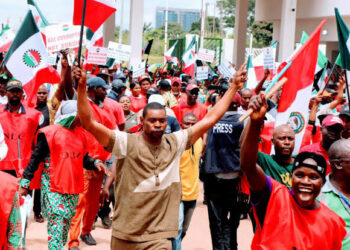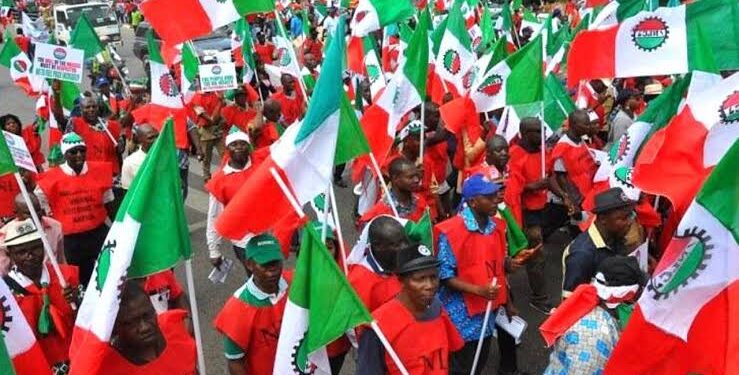As the Nigerian Labour Congress (NLC) embarked on a two-day warning strike, the nation’s citizens were left to bear the brunt of a political power play that has plunged the country into chaos and uncertainty. The strike, which brought economic activities to a grinding halt, has left the vulnerable citizens wondering.
What is the true motive behind the NLC’s strike? Is it a genuine attempt to address the grievances of the working class, or a political plan to flex muscle?

The working class, already struggling to make ends meet, was dealt a cruel blow as the strike crippled the economy. Daily life became a desperate struggle for survival, as citizens scrambled to access basic necessities like food, water, and healthcare. The streets were filled with protests, rallies, and marches, as the people demanded an end to the suffering. But their cries fell on deaf ears, as the political machinations continued unabated.
Why has the government failed to address the issues affecting workers, such as the minimum wage, insecurity, corruption, and poor governance?
The NLC’s leadership, political affiliations, and true motives were shrouded in mystery, fueling speculation and debate. The citizens were left to wonder if the strike was a genuine attempt to address their grievances or a calculated move to flex political muscle. As the strike dragged on, the citizens’ suffering intensified. Businesses were forced to shut down, leaving workers without pay. Hospitals were unable to function, leaving the sick and injured without care. The most vulnerable members of society – the poor, the elderly, and the children – were left to bear the brunt of the strike.
What is the fate of the Nigerian citizens, caught in the crossfire of political power plays?
The nation’s citizens were caught in the crossfire of political intrigue and power struggles, their suffering ignored by those who claimed to represent them. The NLC strike was a stark reminder of the political class’s disconnect from the people they serve. The government’s promises of a better life for its citizens ring hollow in the face of such suffering.
But their cries fell on deaf ears, as the political machinations continued unabated. The NLC’s leadership, political affiliations, and true motives were shrouded in mystery, fueling speculation and debate. The citizens were left to wonder if the strike was a genuine attempt to address their grievances or a calculated move to flex political muscle.
Key Highlights:
- The NLC strike plunged the nation into chaos and uncertainty
- The working class suffered the most, struggling to access basic necessities
- The citizens’ cries for help fell on deaf ears, as political machinations continued
- The strike intensified the suffering of the most vulnerable members of society
- The political class’s disconnect from the people was starkly exposed
Tomorrow’s Wars:
The NLC strike has left a scar on the nation’s citizens, a reminder of the political class’s disregard for their suffering. As the nation moves forward, it must prioritize the needs of its people, rather than using them as pawns in political power plays. The citizens demand a government that serves them, not one that ignores their cries for help.
The future of Nigeria’s citizens hangs in the balance, as they wait for a political class that truly represents. What really is left for Nigerians to bear? The future is uncertain.

















